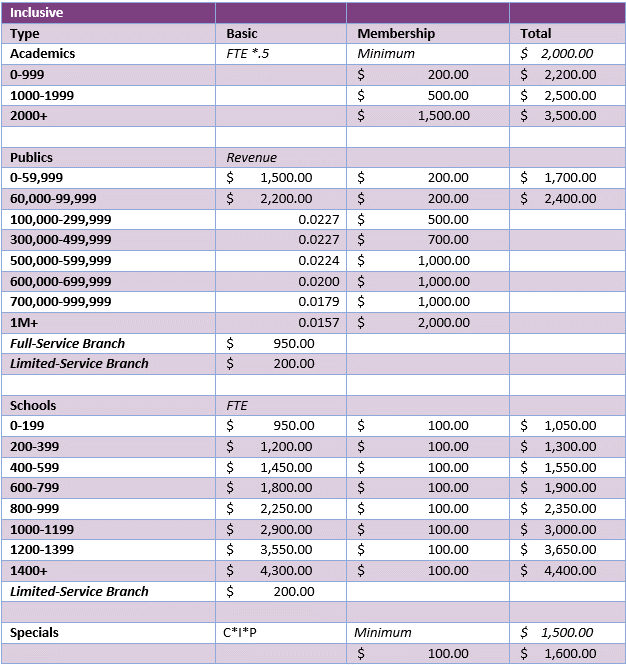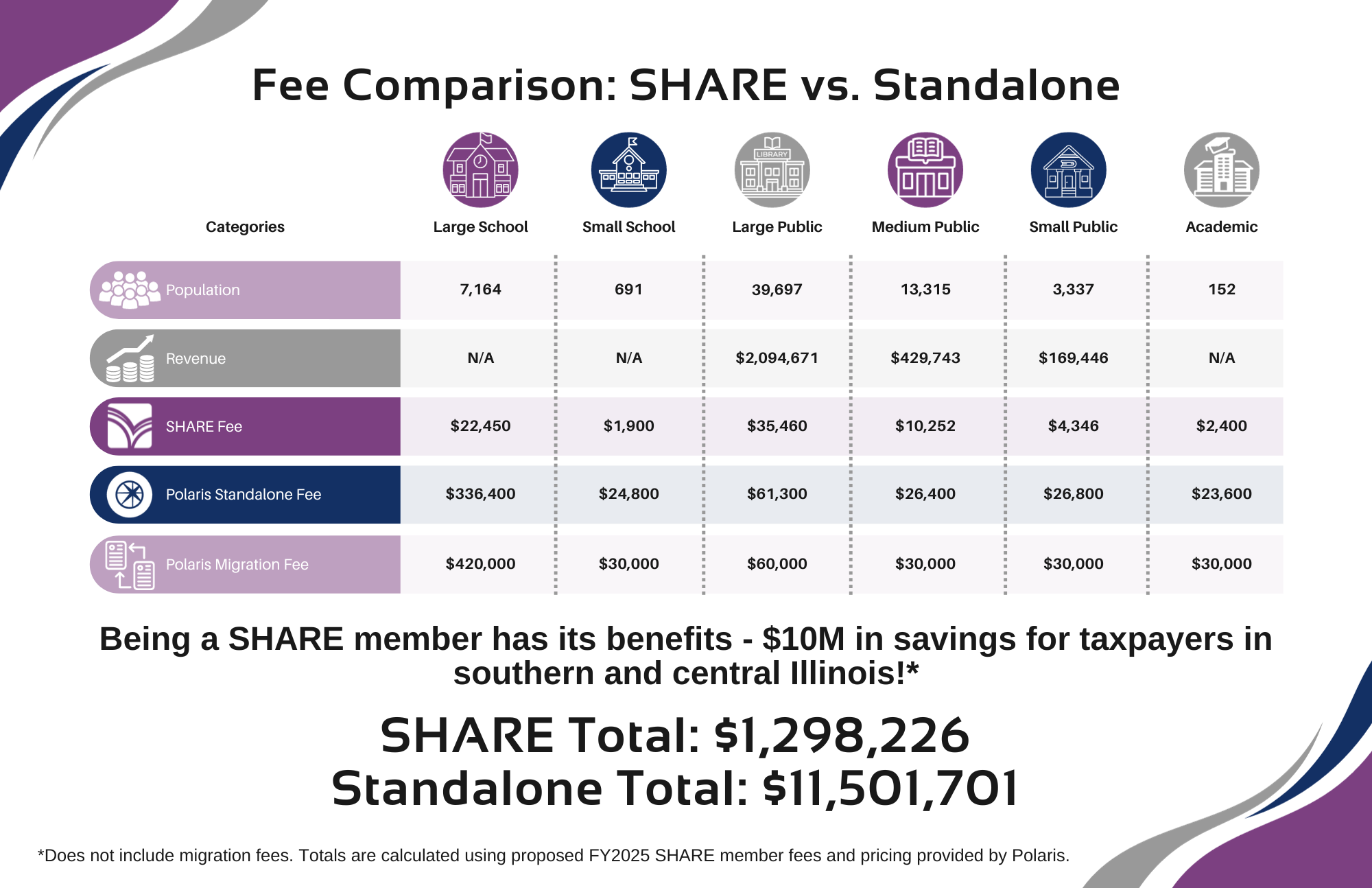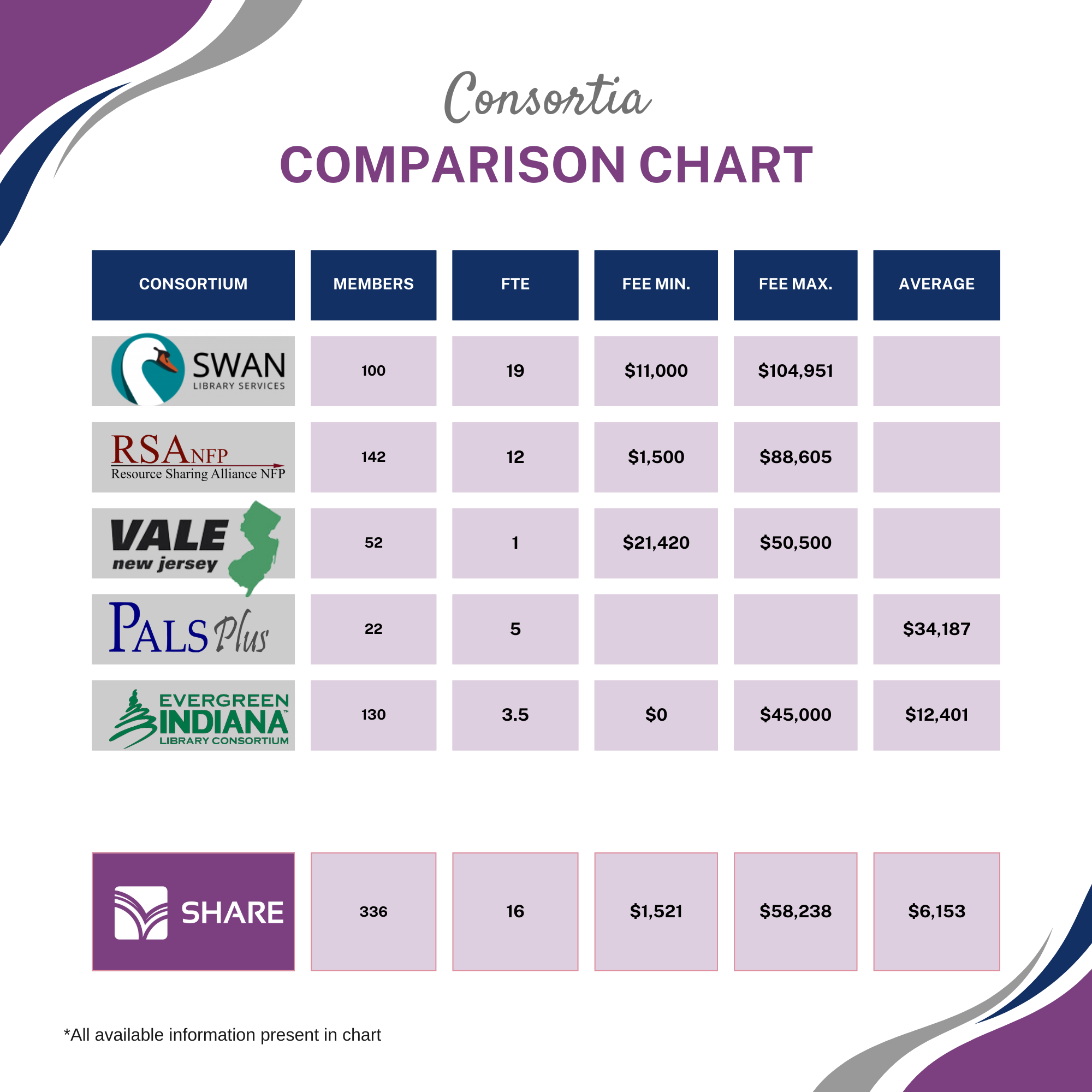Voting is now closed for the SHARE Members' Group.
Our Annual Member’s Group Meeting was held on Jan. 24, 2024, at 2:00 p.m. All voting topics are discussed below, and a recording of the meeting is available for your viewing.
The SHARE Membership Meeting is an opportunity to share news regarding the consortium, including the various committee updates. It is also an opportunity to propose different policies or governance changes, giving members information to make thoughtful decisions regarding any proposed changes or enhancements. Voting was opened one week after the meeting and is now closed.
Voting Topics
Permissions Policy
Database security is a top concern. This policy outlines who should have access to our member libraries' patron data.
Fee Increase Policy
The conversation surrounding membership fee increases has been a robust one – member feedback indicated that members would prefer to see smaller, more regular increases in membership fees to prevent future large increases.
This proposal seeks to address this request in the future.
Bibliographic Services Fees
Currently, there are three tiers of bibliographic service support: Cataloging, Barcoding A, and Barcoding B.
Since the beginning of the program in 2013, the price of original cataloging has remained at $10 per item, with the addition of a lower fee for express cataloging, the $3 Bib program. These fees have never been increased and are only covering a small portion of the costs of bibliographic services. In addition, the Barcoding A program is not equitable to all members – the amount of items sent in is often not reflective of the time cost for cataloging the items.
This proposal seeks to address the issues within the three tiers of bibliographic service support.
Member Fee Scale Increases
In 2022, after three years without an increase in fees, the SHARE Finance and Policy Committee began their regularly scheduled review of membership fees compared to cash flow projections. The review showed that an increase in membership fees would be needed for SHARE to continue operations, as a deficit was emerging. The committee extensively reviewed several membership fee models over the last year, and an inclusive model was determined to be the best overall option for FY2025.
Members are asked to review the membership fee scale proposal in preparation for the upcoming voting period following the SHARE Annual Members’ Group Meeting.
History
The committee’s review included extensive discussions on the financial struggles many members are facing due to inflation and how to minimize the increases overall. Additional considerations included:
- Smaller libraries being heavily impacted by fee increases vs. the frequency at which larger libraries absorb costs for other members
- Simplifying billing through a per-location pricing model rather than a mix of agency and location
- Costs for add-ons being much more affordable when spread equally amongst membership vs. seeing higher increases for libraries who did not previously utilize additional services or modules
- cloudLibrary pricing and the need to reduce hold ratios to remain competitive with other e-resources consortia
- The desire for all members to have access to the same exceptional technology and resources
Members were surveyed twice about their preference for the traditional model and the newly conceptualized inclusive model. Three town hall meetings were held for members to learn more about the need for the increase and to voice their preference for either model. Despite these efforts, members did not show a clear preference for either model.
Read More on the History of Member Fee Scale Increases
The committee determined that the inclusive model would be the best overall value for members. This model includes modules, cloudLbirary, and Aspen to ensure all members have access to the same technology across SHARE, bridging the resource gap between small and large libraries throughout central and southern Illinois. The new scale below would determine each member library fee, based on revenues (publics), enrollment (academics and schools), or usage (specials).

The SHARE Reserve Fund, combined with the increased investment income accrued in FY2023, will help serve as a stopgap measure to reduce the impact of fee increases for members. During FY2025 and FY2026, the SHARE Finance and Policy Committee will review the projected cash flow of the annual transfer to the SHARE Reserve Fund and adjust the amount as needed to help cover projected budget deficits.
Estimate
To review the impact on each of our members, please see the attached SHARE fee increase proposal estimates. Please note that these estimates are based on data from FY2023 and may fluctuate once new data on revenue and enrollment becomes available in early 2024.
How does SHARE compare?


